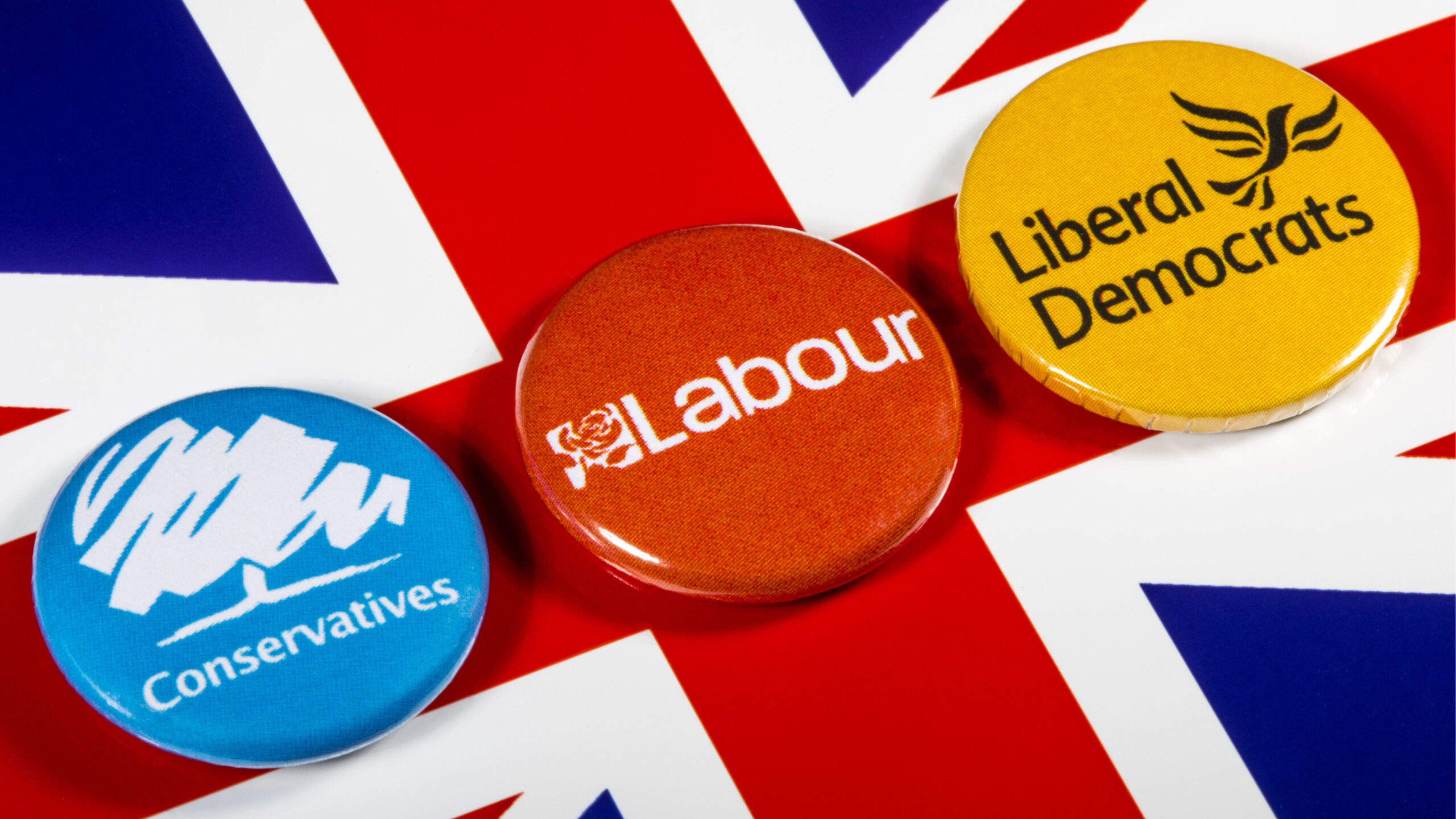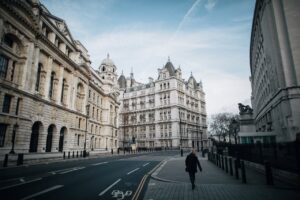In 2024, the number of key issues to be tackled by the next government feels dizzying – cost of living, housing, early years education, global conflicts, immigration policy, rising inequalities, responsible use of artificial intelligence, the climate crisis, economic growth and productivity – I’ve probably missed some there too.
It wouldn’t at all be tenuous to make links to this current malaise to our higher education system. At the forefront of economic, social and cultural polarisation is education and this reaches its zenith in the gaining of an undergraduate degree. Tony Blair’s aspirational target of 50 per cent of young adults going into higher education has been described as “one of the great mistakes of the last 30 years” by current Prime Minister Rishi Sunak, and political commentators like David Goodhart have characterised the growth in university participation in the second half of the twentieth century as a catalyst for political polarisation rather than a cause for celebration of social progress.
This has led to academic enquiries of whether mass education in crisis should retreat or to push on with the long upward trajectory predicted by Martin Trow as transitions from forms of higher education described as elite, mass and universal. In 1945, fewer than five per cent of the population studied for a degree. Blair’s 50 per cent target was surpassed in 2017-18. The working assumption is that demand for higher education will continue to increase – albeit not necessarily exclusively for the full-time academic degree format. But will there be political support for expansion?
It is estimated that around 50 per cent of the world will be taking part in national elections this year and graduates/non-graduates have become a fault line in many societies. In the US Presidential election, a rematch between President Biden and former president Donald Trump is going to ratchet up fractious and polarising discourse. Trump famously said in 2016 that he “loves the poorly educated.” As the UK’s Reform party gains in the polls with its own “charismatic” communicator Lee Anderson taking to the airwaves, similar cultural dividing lines could be a key aspect of the UK election. Culture wars are seemingly never far away from our current political epoch – for some this polarisation is the outcome of social, economic and cultural fragmentation and disillusionment, while for others this tension is created and stoked by the media and politicians.
We can’t predict the outcome of the UK General Election, despite Labour’s very favourable current poll lead which points to a majority Labour government. But if a week is a long time in politics, seven months is even longer. As a “senior Tory source” told The Sun recently:
Just imagine what would happen if England won the Euros, Team GB had a hat full of gold at the Olympics — the landscape could be very different.
We don’t expect higher education to feature as a “doorstep issue” in the next election – despite the financial challenges facing the sector and the very real connections between university success and the national interest, universities have relatively low political salience around election time when compared to issues like health, schools, local services, or immigration. But higher education does frequently appear in political parties’ manifestos – and there is much to glean from the nature of the policies proposed, the context in which universities or higher education appear, and the language used to describe parties’ policy proposals. Analysis of previous manifesto texts can provide a window into what has been considered politically popular and acceptable to be put before the electorate.
Between 1945 and 2019 there have been 21 national general elections in the UK. In that time there have been three parties that have consistently sought to return Members of Parliament to Westminster: the Conservatives, Labour, and Liberal Democrats (in various guises). Their manifestos present us with a corpus of 63 texts and 651,696 words over 74 years with three party political perspectives for each of the 21 elections.
Mentions in numbers
In the months ahead Wonkhe editor Debbie McVitty and I will be diving into the specific manifesto texts, but we began by conducting an analysis of the whole corpus to investigate broad patterns and themes that could inform our readings for each decade. We started by analysing the number of times “higher education” and “university” or “universities” was found over the 74 year period.
We found no preference in political affiliation with the term “university” with a fairly equal spread of mentions across political stripes, but there was a slightly high proportional use of “higher education” by Labour.
Despite the continued growth in number of students and higher education institutions over the period such a smooth upward trajectory didn’t come in the volume of occurrences in mentioning higher education and universities.

What we do see here are particular spikes in some election years. 1966, 1987, 2001 and 2010 saw a particular focus on higher education and the university (in numbers of mentions at least). What was special or different about those years?
- 1966 saw Harold Wilson remain as Prime Minister following a narrow victory in 1964
- 1987 saw Margaret Thatcher win a third term as Prime Minister
- 2001 was Tony Blair’s second general election victory
- 2010 saw the coalition Government of the Conservatives and Liberal Democrats come to power after 13 years of Labour government and the infamous Liberal Democrat U-turn on tuition fees.
1966, 1987 and 2001 saw Harold Wilson, Margaret Thatcher and Tony Blair all staying in Number 10 Downing Street for second (and in Thatcher’s case, third) terms in office. This does suggest a stability politically and economically that encouraged higher education to be a key issue and a higher percentage of space and policy thinking being given over to the sector in manifesto texts.
Interestingly, it wasn’t necessarily the sitting party of power that gave over more focus to the sector – it was fairly evenly spread across all three manifesto texts. Should this historical trend hold up in 2024, higher education might expect to feature prominently once again by about 2029. An outlier here is the 2010 election which saw David Cameron and Nick Clegg and the Conservatives and Liberal Democrats construct a coalition government. Although now synonymous with the U-turn on undergraduate fees and the subsequent tripling of them, the manifesto texts saw Labour give over more than double the mentions of higher education and universities than both Conservatives and Labour.
Where and how higher education shows up
Looking over the period of 1945-2019 we were also interested in the context within which higher education and universities were mentioned in the corpus of manifestos. To do this, we identified the section or sub-heading in which mentions of universities or higher education were found in the text. This gave some qualitative context but was still quantifiable enough to show us some trends across the eight decades.
In the immediate post-war period universities and higher education had a fairly narrow scope of responsibility and concerns in politics. The 1940s and 1950s manifestos linked higher education and universities to education, science and innovation and health – a clear focus on research and teaching.
As the decades wear on, political parties begin to link wider social, political, cultural and economic demands to universities and higher education. The 1960s included these core activities but also saw the inclusion of “youth” as a subject of focus and subheadings focusing on higher education as its own entity as well as being described as a public service by the Labour Party. In the decade of the Robbins Report and creation of new universities, the Open University was a focus for Labour in 1966. This is a theme that continues for Labour over the next 50 years with the Open University described as a key Labour social and educational achievement.
The 1970s saw just one mention within the context of the economy – but that trend would change with increased mentions of universities’ economic role. Scattered throughout are references to regional and national devolution and how universities are part of that context. 1983 sees immigration mentioned for the first time in the context of universities and higher education with the Liberal Democrats describing international students as part of the UK higher education system.
The 1980s also began to see further and higher education discussed in a similar vein to current debates around tertiary and post-16 systems of education. In 1983 Labour proposed to replace “a rigid A level system” with “a tertiary awards council” and a two year “student-traineeship” as an alternative to A levels, and to expand higher education places, including expanding opportunities for adults in further and higher education. In 1987, the Conservatives advocated for polytechnics as strong, successful and mature institutions and complimentary to universities and proposed to convert them and higher colleges in England to “to free-standing corporate bodies under boards of governors” and set up a new Polytechnics and Colleges Funding Council independent of central government, in place of local authority control.
In the 1990s all three parties include sections on lifelong learning. The coming of the new millennium in our analysis broadens the links that are made between universities and higher education and wider social concerns. Labour’s emphatic 1997 victory, the turn of a new century and the excitement of the internet (and fear of the Millennium Bug) and moving towards a “knowledge economy” may well have injected political interest in lifelong learning and the term appears in subsequent manifestos across all parties. The Open University – long considered one of Labour’s key achievements in government in the sixties – appears frequently in subsequent Labour manifestos, generally with the promise of expanding places.
2024 has some similarities with both 1964 and 1997 – a long period of Conservative government and the energy of new digital technologies improving people’s lives or potentially, fundamentally changing the social fabric. The possibilities and trepidation of AI could be invoked in similar ways to Labour Prime Minister Harold Wilson enthusing about the “white heat of technology” and Tony Blair’s emphasis on “education, education, education.”
Past the peak?
The turn of the century sees a significant change in the focus on universities and higher education, not just in sections on youth, education and research but featuring in bigger and wider policy pledges and appearing in introductory narratives as well as in various different chapters or sections. The 2001 Labour Party manifesto identified ten goals for 2010, the third being “expanded higher education as we raise standards in secondary schools.” The Conservatives in 2005 introduced their manifesto with “Our country has everything going for it. Creative flair, world-beating companies, globally-respected universities, a tradition of tolerance, a love of freedom, a talent for enterprise, a concern for the underdog and the ability to pull together in a crisis.”
2010 was one of the peak election years for mentions of higher education and universities along with 1966, 1987 and 2001 – in fact it was the peak of all 21 texts with 57 occurrences. There are many thematic similarities to the sections in which universities and higher education are mentioned in previous years – science and innovation, (higher) education, economy, public services and economy – and we see more links to immigration and the European Union. Some of this is attributable to the debate about undergraduate tuition fees which was a genuine issue in this election, but in retrospect this historical moments appears as the peak in which universities were represented by policymakers as woven into the political life of the country, or as having a stake or a role in the various policy agendas on the table.
In 2015 the Conservative manifesto celebrates plans to remove the cap on student numbers in England, “removing an arbitrary ceiling on ambition.” Labour describes higher education as a public service and features making university affordable as a key manifesto pledge, with mentions in the foreword and conclusion. The link to immigration continues with the Conservatives pledging to review student visas and London-based “satellite” campuses, and Labour working to balance the “talent and investment” that migrants bring “including university students coming to study” with asserting a need for the system to be “controlled and managed.” Both Labour and the Conservatives included education in “confronting” and “tackling” extremism. There is also some focus on students in particular with Labour pledging to introduce electoral reform with block electoral registration in universities and care homes and the Liberal Democrats promising to “Maintain Disabled Students’ Allowance to ensure students with disabilities receive appropriate support in their university studies.”
We know what happened after 2015 – Conservative majority government, the Brexit referendum, the resignation of Prime Minister David Cameron and the dramatic political debates and divisions that ensued. Having enjoyed a short period in the (relative) political spotlight, universities were once again relegated to being of minor importance in the 2017 and 2019 general elections.
But during that time, political discourse around universities also shifted from relatively uncritical celebration of educational aspiration to a focus on concerns around value for money, a hardening of narratives of the impact of international recruitment on migration numbers, and questions over whether universities are sufficiently robust in protecting freedom of speech and academic freedom. From universities’ perspective, this is a highly unpromising basis on which to enter the 2024 campaign – the risk of university and higher education issues being weaponised by one or more of the parties or featuring in campaigns in negative ways is significant.
However universities show up in the GE 2024 manifestos, now would be a good time to build the relationships with sitting MPs and prospective parliamentary candidates that can support the re-engagement of political parties with the value, and values, of higher education. This analysis and the deeper dives that will follow suggest that to regain the kind of positive political salience it has enjoyed in the past, higher education needs to be nimble and effective in crafting narratives of economic, social, cultural and technological value and to be a contributing factor and part of the solution to the myriad challenges facing the next government, whatever it may be.




